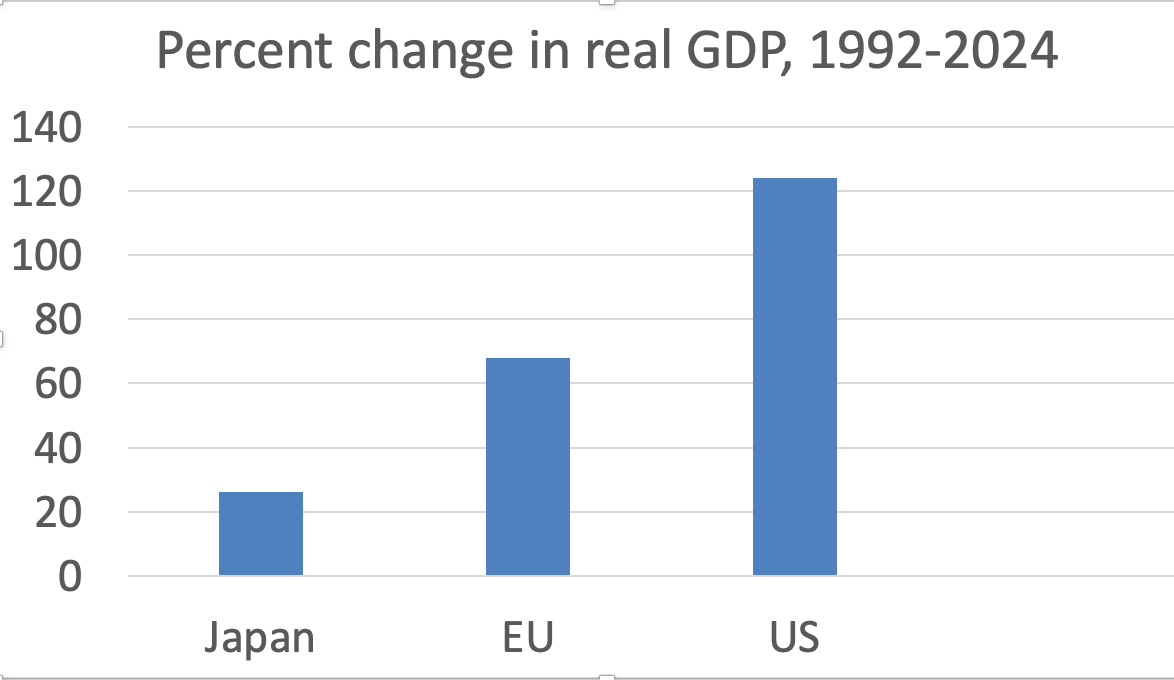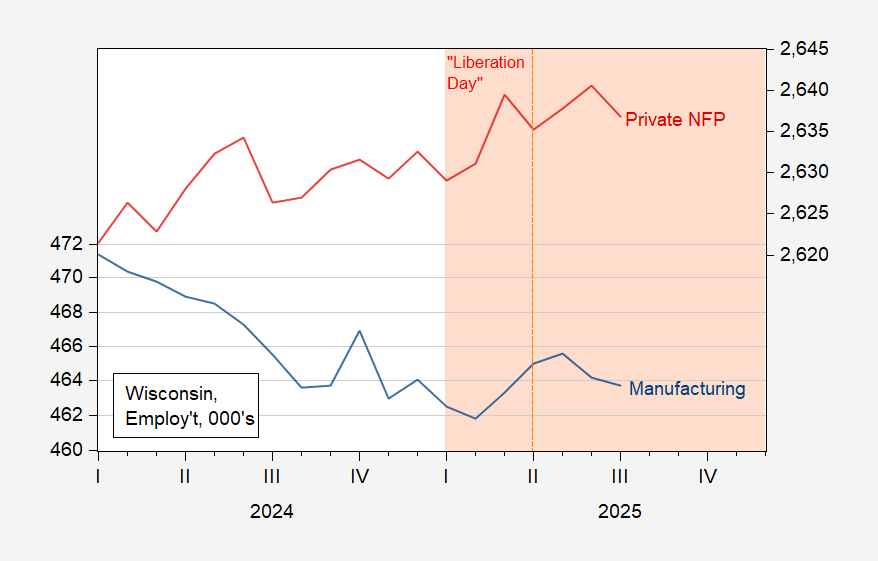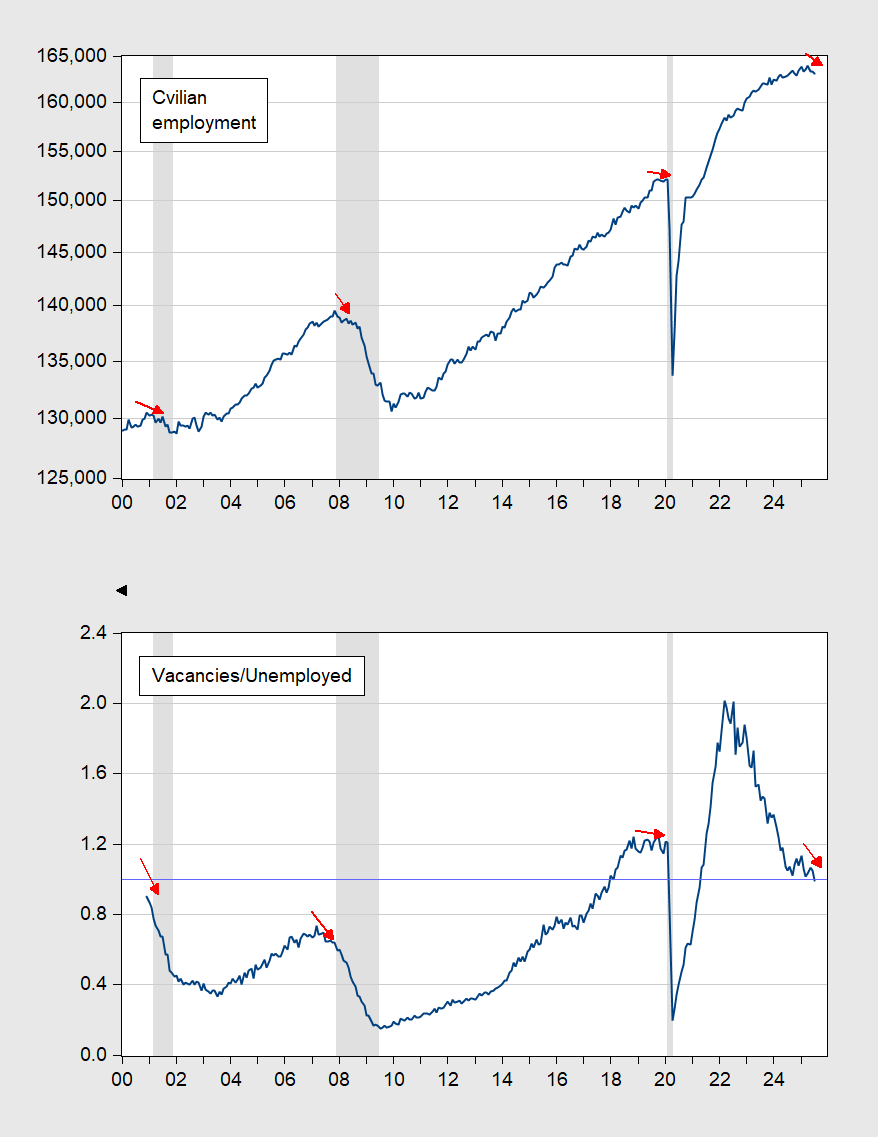
1321. You can trust the jobs report, Labor Department workers urge public
Andrea Hsu discusses the Bureau of Labor Statistics workers' defense of the integrity of jobs reports following President Trump's criticisms.
your daily dose of economic commentary

Andrea Hsu discusses the Bureau of Labor Statistics workers' defense of the integrity of jobs reports following President Trump's criticisms.

Pierre Lemieux discusses the implications of tariffs on steel, arguing that free trade is essential and criticizing the concept of "fairly traded steel" as self-serving.

The post discusses the history of computers at Harvard, focusing on early machines and their evolution, while connecting this history to teaching quantitative methods and causal inference.

The post discusses the factors influencing house prices, including inventory, sales, unemployment, and recent policy changes affecting the economy and housing market.

Nate Silver discusses Bluesky's decline in influence compared to Twitter/X and explores the factors affecting social media platform growth and user retention.

South Korea's foreign ministry expresses concern over the detention of approximately 300 South Koreans during an immigration raid at Hyundai's plant in Georgia.

Paul Krugman discusses the rejection of scientific and technological progress by political reactionaries, highlighting its implications for economic and social advancement.

The August employment report revealed disappointing job numbers, a rise in the unemployment rate to 4.3%, and revisions of previous payroll figures downward.

Scott Horsley discusses the recent addition of only 22,000 jobs in the U.S. labor market, indicating potential weaknesses in the economy.

The post discusses the August employment report, highlighting job changes, the unemployment rate, and revisions to previous employment data, indicating a weak labor market.

Robert Vienneau critiques Ben Shapiro's misinterpretation of Marx's labor theory of value and highlights inaccuracies in Shapiro's understanding of Marxian economics.

The post invites readers to share their experiences and questions about renting and homeownership for an upcoming NPR series.

Bill Chappell discusses how Etsy sellers are adversely affected by tariffs and changes to the de minimis rule, impacting their business operations.

PBS announces a 15% staff reduction due to decreased federal funding, resulting in over 100 job losses.

Menzie Chinn discusses the impact of President Trump’s tariffs on Wisconsin's economy during a panel discussion at a WisPolitics luncheon.
An argument that political influences on Federal Reserve appointments could destabilize the dollar, harming US households and small businesses during financial crises.

Menzie Chinn analyzes JOLTS data and ADP employment figures, highlighting a decline in the vacancies to unemployed ratio and decelerating employment growth.

Bill McBride discusses the decline in visitor traffic to Las Vegas in July 2025, highlighting statistics on tourism and convention attendance.

Scott Horsley discusses senators' concerns regarding Stephen Miran's potential independence as a Federal Reserve nominee amid worries about central bank autonomy.

The post discusses the tension between political influence and the independence of the Federal Reserve in setting interest rates, particularly during Trump's presidency.